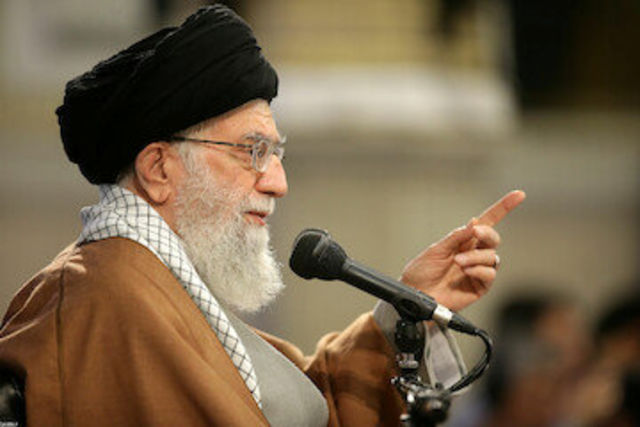Khamenei calls for economic initiatives
By LIU XUAN | China Daily | Updated: 2019-03-22 11:09

Latest 90-day waiver from US allows Iraq to purchase electricity from Iran
Iran needs to deepen its reforms to improve its economy and overcome the difficulties caused by the US sanctions, according to an expert, as the country's top leader delivered a speech marking the end of a year of economic crisis fueled by the renewed sanctions.
Iran Supreme Leader Ayatollah Ali Khamenei said in a speech broadcast on Thursday that the Islamic Republic had successfully resisted US sanctions, and called for economic initiatives and the boost of production to face the pressures.
"In the face of severe and, according to them, unprecedented sanctions from America and Europe, the Iranian people showed a strong and powerful reaction both in the field of politics and economy," Khamenei said in a pre-recorded speech aired on state television.
He admitted that Iran's main problem lies in the economic field, which is "partly rooted in mismanagement".
Iranian President Hassan Rouhani said after the Khamenei's message that the economic problems were primarily caused by US sanctions, and measures should be taken to help the Iranians get out of the trouble.
"The new year is a year to boost production and create jobs for our dear young people," Rouhani said. "The new year is the year to control inflation, bring balance to the foreign currency market and expand friendship with neighboring countries."
Zou Zhiqiang, a researcher from the Middle East Studies Institute of Shanghai International Studies University, said internal reform is of great importance to boost Iran's economy.
He said US sanctions have greatly affected Iran's economy and its people's daily life, as the currency is depreciating sharply, inflation is soaring, and the unemployment rate is rising.
"As the US sanctions continue, the difficulties Iran is facing will be increasingly significant," he said, suggesting use multiple ways to break through the sanctions, such as cooperating with other countries to maintain the nuclear deal signed in 2015; and implementing local currency settlement or even virtual currency with more countries.
The United States reimposed sanctions on Teheran after President Donald Trump chose in May to abandon Iran's 2015 nuclear accord.
Zou said that although Iran's current economic difficulties are mainly caused by US sanctions, the country's long-standing single economic structure as well as institutional problems are deeply-rooted causes of its current plight.
He said internal reforms, though complicated and difficult to carry out, are necessary and should include developing tertiary industry and emerging industries to promote economic diversification.
Iranian Foreign Minister Mohammad Javad Zarif on Wednesday called the US sanctions "unprecedented, inhumane and illegal", and said Teheran would overcome the "medieval tactics" employed by Washington, according to his own social media account.
"We rely solely on our own people to overcome any challenges. But we also welcome constructive engagement, including with the expanding array of nations who are equally sick and tired of the bullying of the US," Zarif said, ahead of the start of the new year in the Iranian calendar.
Meanwhile, the US granted Iraq a 90-day waiver exempting it from sanctions to buy power from Iran, a State Department official said. It is the latest extension allowing Baghdad to keep purchasing electricity from its neighbor, Reuters reported.
The US government reimposed sanctions on Iran's energy exports in November, but has granted waivers to several buyers to meet consumer energy needs.
The grant was given based on Iraq's need, Zou said, but for Iran it was also a way to evade US sanctions, which could help ease the economic pressure.
























